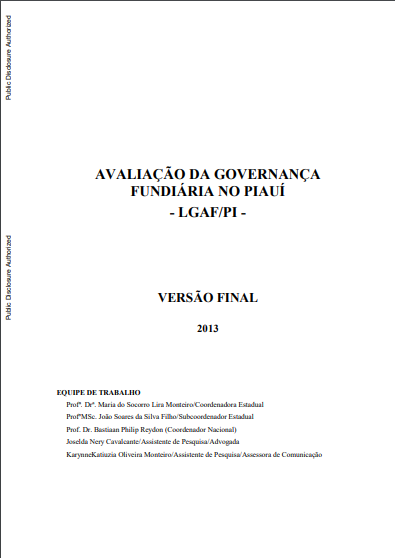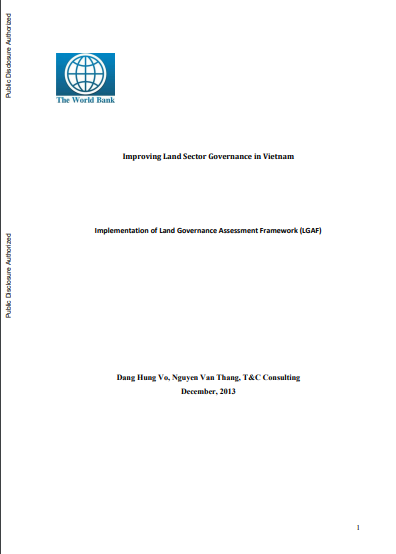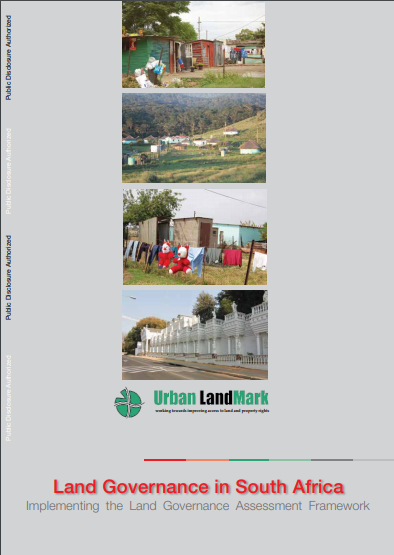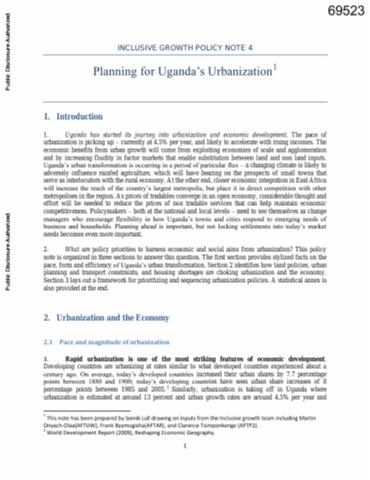The World Bank is a vital source of financial and technical assistance to developing countries around the world. We are not a bank in the ordinary sense but a unique partnership to reduce poverty and support development. The World Bank Group has two ambitious goals: End extreme poverty within a generation and boost shared prosperity.
- To end extreme poverty, the Bank's goal is to decrease the percentage of people living on less than $1.25 a day to no more than 3% by 2030.
- To promote shared prosperity, the goal is to promote income growth of the bottom 40% of the population in each country.
The World Bank Group comprises five institutions managed by their member countries.
The World Bank Group and Land: Working to protect the rights of existing land users and to help secure benefits for smallholder farmers
The World Bank (IBRD and IDA) interacts primarily with governments to increase agricultural productivity, strengthen land tenure policies and improve land governance. More than 90% of the World Bank’s agriculture portfolio focuses on the productivity and access to markets by small holder farmers. Ten percent of our projects focus on the governance of land tenure.
Similarly, investments by the International Finance Corporation (IFC), the World Bank Group’s private sector arm, including those in larger scale enterprises, overwhelmingly support smallholder farmers through improved access to finance, inputs and markets, and as direct suppliers. IFC invests in environmentally and socially sustainable private enterprises in all parts of the value chain (inputs such as irrigation and fertilizers, primary production, processing, transport and storage, traders, and risk management facilities including weather/crop insurance, warehouse financing, etc
For more information, visit the World Bank Group and land and food security (https://www.worldbank.org/en/topic/agriculture/brief/land-and-food-security1
Resources
Displaying 2941 - 2945 of 4907Avaliação da governança fundiária no Piauí - LGAF/PI : Versão final (Portuguese)
The Land Governance Assessment Framework (LGAF) is a diagnostic tool to assess the status of land governance at country level using a participatory process that draws systematically on existing evidence and local expertise rather than on outsiders.
Improving land sector governance in Vietnam : Implementation of land governance assessment framework (LGAF) (English)
The Land Governance Assessment Framework (LGAF) was designed to address these challenges by the World Bank, based on a comprehensive review of available conceptual and empirical materials regarding experience in land governance. The objective of LGAF is was developed as a diagnostic tool for a systematic evaluating and benchmarking legal framework, policies and practices regarding land and land use. This document represents the country report for Vietnam’s national LGAF Study.
Land governance in South Africa : implementing the land governance assessment framework (English)
The land governance assessment framework (LGAF) is an innovative and participatory diagnostic tool that assesses the state of land governance in a country. The LGAF has optional modules for other topics such as large-scale land acquisition, forest land, and regularization of rights in urban areas. In South Africa, large-scale land acquisition was selected as an additional thematic area, as was the case in Nigeria. A framework of approximately 21 land governance indicators guides the process in these thematic areas, each divided into three or four dimensions.
Land governance assessment framework: Identifying and monitoring good practice in the land sector
Seventy-five percent of the world’s poor live in rural areas and most are involved in agriculture. In the 21st century, agriculture remains fundamental to economic growth, poverty alleviation, and environmental sustainability. Increased global demand for land because of higher and more volatile food prices, urbanization, and use of land for environmental services implies an increased need for well-designed land policies at the country level to ensure security of long-held rights, to facilitate land access, and to deal with externalities.
Planning for Uganda's Urbanization
Uganda has started its journey into urbanization and economic development. The pace of urbanization is picking up currently at 4.5 percent per year, and likely to accelerate with rising incomes. The economic benefits from urban growth will come from exploiting economies of scale and agglomeration and by increasing fluidity in factor markets that enable substitution between land and non land inputs.










